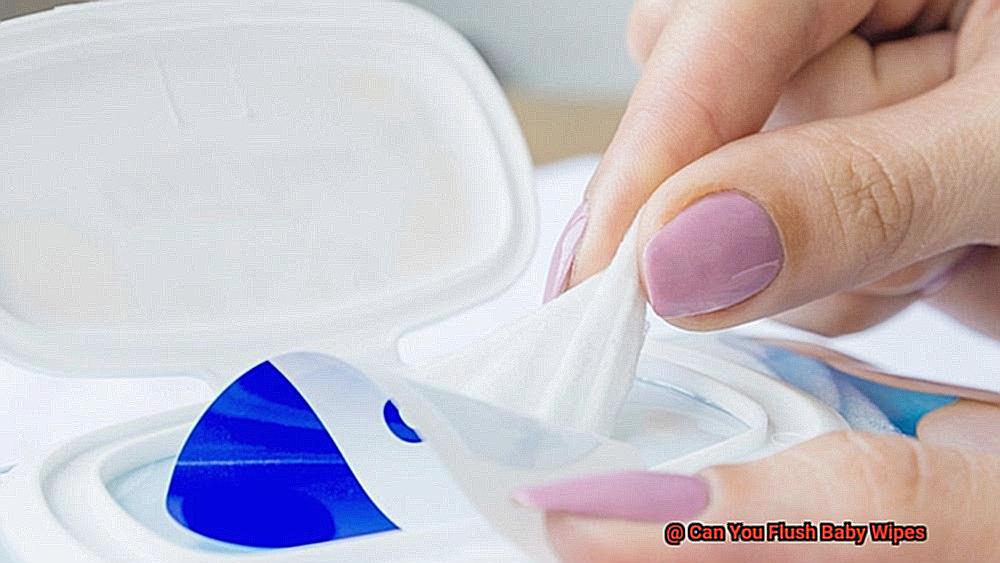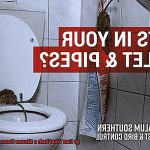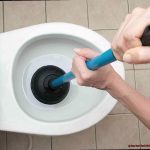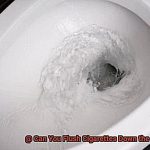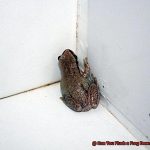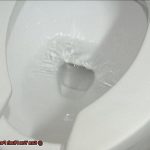Are you tired of the mess and hassle of diaper changes? Baby wipes are a lifesaver for parents, but what do you do with them after use? The answer might surprise you: flushing them down the toilet is not the way to go.
Despite claims of being “flushable,” these wipes can wreak havoc on your plumbing system. They don’t break down as easily as regular toilet paper and can cause blockages that lead to costly repairs. And if that wasn’t bad enough, they can also cause damage to the sewage system and harm the environment.
But don’t just take my word for it. Non-flushable wipes are even worse, as they are not designed to break down at all. These wipes can clog your pipes and cause major plumbing issues.
So, what’s the solution? It’s simple: throw those used baby wipes in the garbage instead of flushing them down the toilet. Your plumbing will thank you, and so will the environment. Trust me, it’s worth it in the long run.
Contents
What Are Baby Wipes?
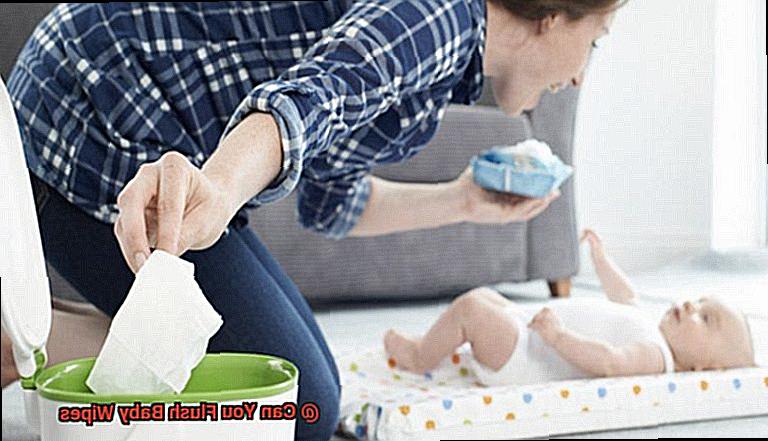
From messy diaper changes to cleaning up after feeding, baby wipes are a lifesaver for any parent on-the-go.
One of the most important things about baby wipes is that they are gentle on delicate infant skin. Made from a combination of water, mild cleansers, and other additives such as moisturizers or fragrance, baby wipes keep your baby clean and fresh without causing irritation.
But that’s not all – baby wipes come in all shapes and sizes to meet the needs of every family. From scented and unscented options to hypoallergenic varieties for babies with sensitive skin, there’s a baby wipe out there for everyone. Some even have eco-friendly options made from sustainable materials, perfect for families looking to reduce their carbon footprint.
While baby wipes are incredibly handy, it’s important to note that not all are flushable. In fact, flushing baby wipes can cause serious plumbing problems and environmental harm. Unlike toilet paper, baby wipes don’t break down quickly and can cause blockages in your pipes and sewage systems. So be sure to dispose of them properly in the trash.
In conclusion, baby wipes are a game-changer for parents of young children. With so many types available to suit every need, they make cleaning up after your little one a breeze.
Why You Should Not Flush Baby Wipes
However, what you may not know is that flushing them down the toilet can cause serious problems for your plumbing and the environment. Despite what the packaging may say, baby wipes are not flushable – and here’s why.
Firstly, unlike toilet paper which disintegrates quickly in water, baby wipes are made from synthetic materials that take years to decompose. This means that they can clog up your pipes, leading to expensive repairs and potential damage to your home.
But it’s not just your plumbing that’s at risk. When baby wipes are flushed down the toilet, they can also cause major issues for wastewater treatment plants. The wipes can clog up pumps and filters, leading to backups and overflows. This can have devastating environmental consequences as untreated sewage ends up in our waterways, polluting the water and harming wildlife.
Luckily, there are plenty of alternatives to flushing baby wipes that won’t harm your plumbing or the environment. You can use a washcloth or reusable cloth diaper for cleaning up after your baby, or choose disposable wipes that are specifically labeled as “flushable.” Just be sure to only flush one at a time.
In conclusion, while it may seem convenient to flush baby wipes down the toilet, it’s simply not worth the risk. By disposing of them properly in the trash or using alternative cleaning methods, you can protect both your plumbing and the environment. As a fellow parent, I understand how important it is to keep our planet healthy for future generations.
Potential Problems With Flushing Baby Wipes
One of the most significant issues with flushing baby wipes is that they’re not designed to break down quickly like toilet paper. As a result, they can get stuck in your pipes, leading to clogs and expensive repairs. Not only does this cause frustration, but it also creates a major inconvenience for your family.
If you have a septic system, flushing baby wipes can be even more problematic. Baby wipes can cause your septic tank to fill up more quickly than it should, leading to overflow and other issues that can be costly and challenging to fix.
Unfortunately, the problems don’t end there. Flushing baby wipes can also harm our environment. When they’re flushed down the toilet, they don’t break down quickly like toilet paper, which means they can end up in our rivers and oceans, where they pose a serious threat to marine life and contribute to pollution.
So what’s the solution? It’s simple: dispose of baby wipes in the trash or consider using a diaper pail that is specifically designed for this purpose. By taking this small step, you’ll be able to avoid potential plumbing problems, protect your septic system, and help keep our environment clean.
In conclusion, as a responsible parent, it’s vital to be aware of the potential problems with flushing baby wipes. By making minor adjustments to your daily routine, you can safeguard your home and the environment for future generations.
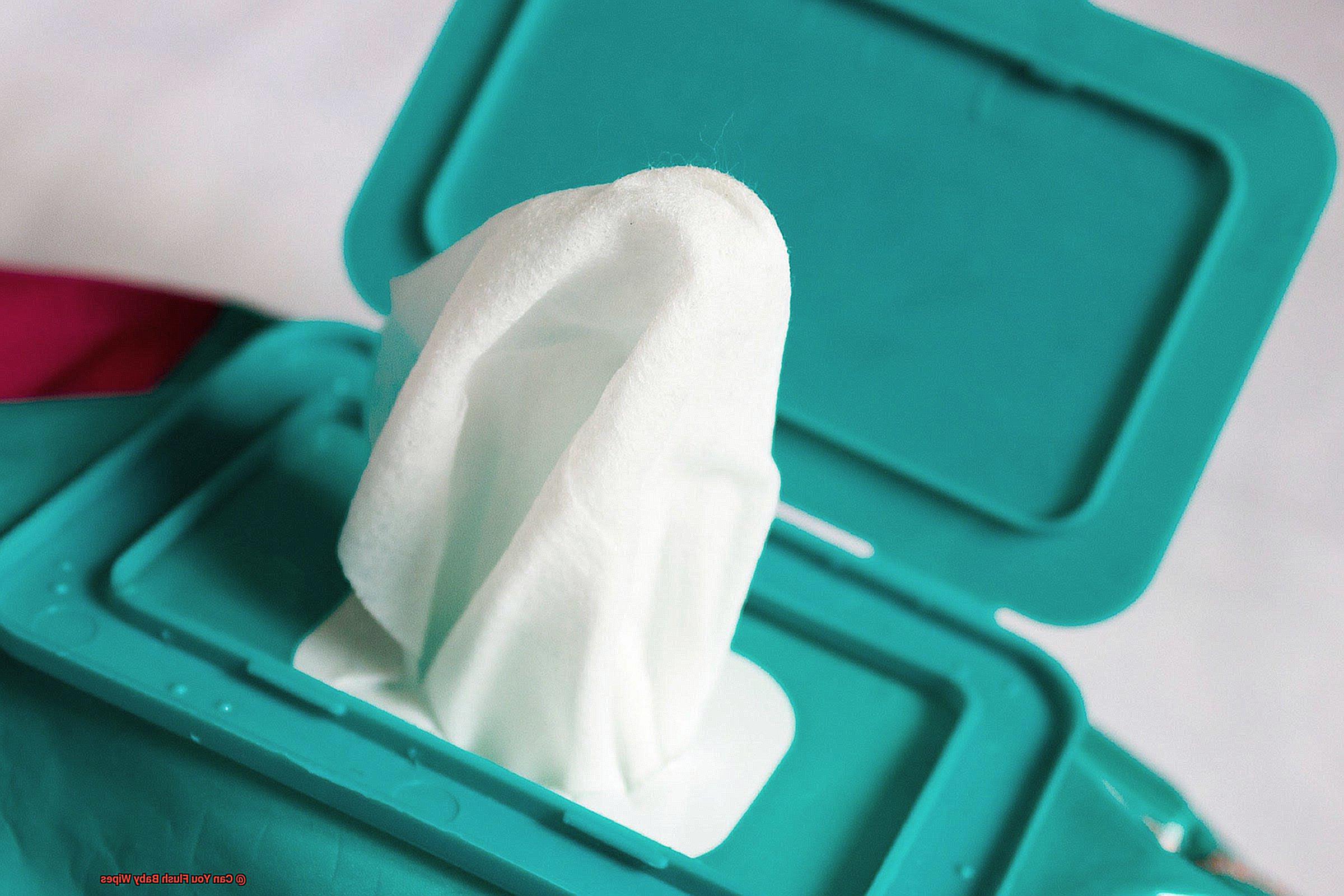
Flushable Baby Wipes: The Exception to the Rule
But when it comes to disposing of them, it can be a bit tricky. While most baby wipes should never be flushed down the toilet due to their non-biodegradable nature and potential to cause blockages in pipes and sewage systems, there are some brands that claim to be “flushable.”
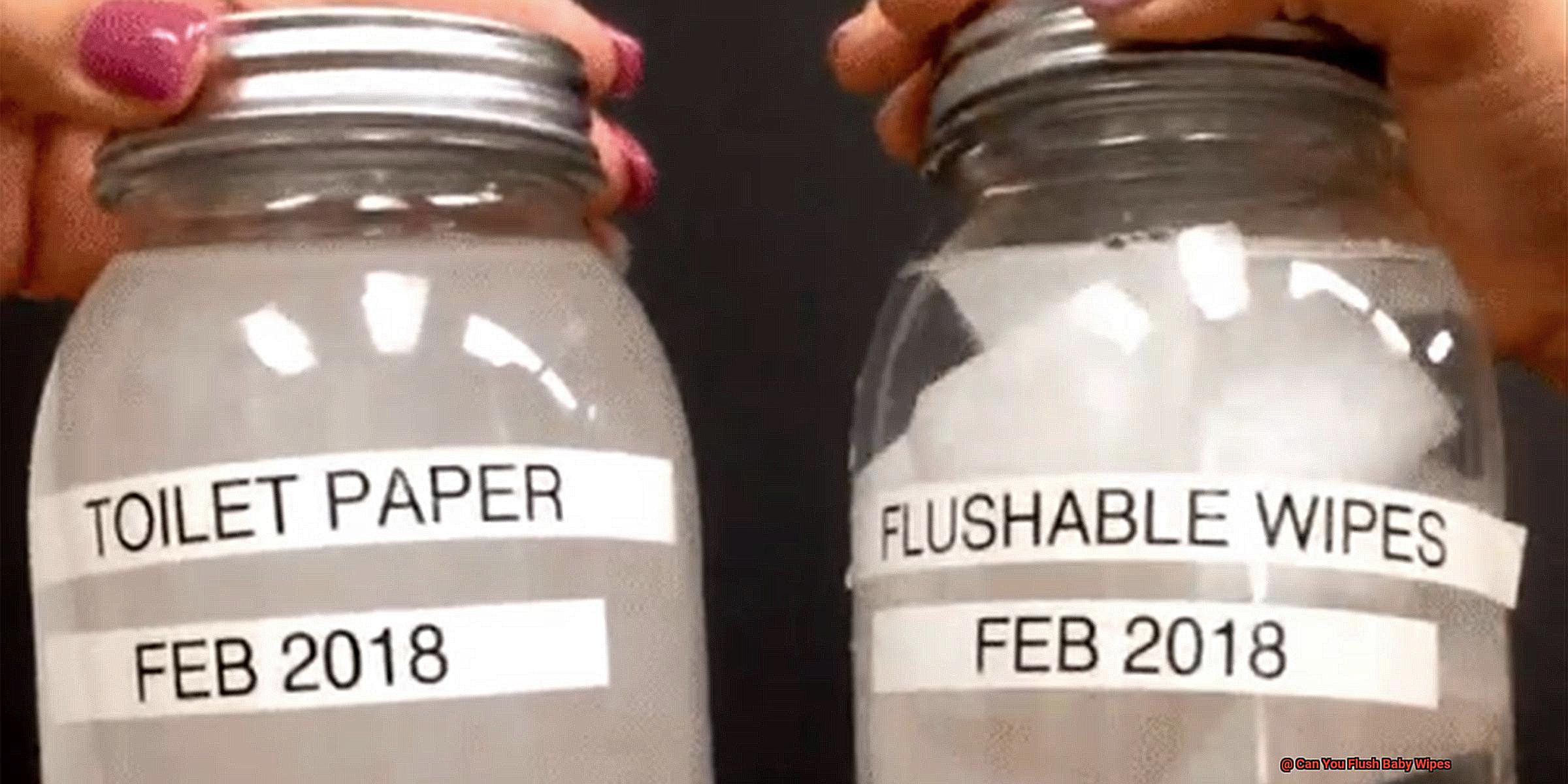
However, not all flushable baby wipes are created equal. It’s essential to read the packaging carefully and look for certifications from reputable organizations such as the Water Quality Association (WQA) or the International Water Services Flushability Group (IWSFG). These certifications indicate that the product has been tested and found to break down properly in wastewater systems.
It’s important to note that just because a wipe is marketed as flushable does not necessarily mean it’s safe to do so. In fact, many of these products have come under scrutiny in recent years for their potential to still cause clogs and backups in plumbing systems.
To ensure that a flushable baby wipe is truly safe to flush, it’s best to stick with certified products and only flush one wipe at a time. Avoid flushing wipes along with other items such as toilet paper or feminine hygiene products, which can increase the risk of blockages.
When in doubt, dispose of used wipes in the trash instead of risking damage to your plumbing system. Not only will this help protect your home, but it’s also better for our planet.
In conclusion, while flushable baby wipes may seem like a convenient option for parents on-the-go, it’s important to exercise caution and make sure the product is certified and safe to flush before doing so. Always read packaging carefully, look for reputable certifications, and dispose of used wipes in the trash whenever possible.
Disposing of Baby Wipes Properly
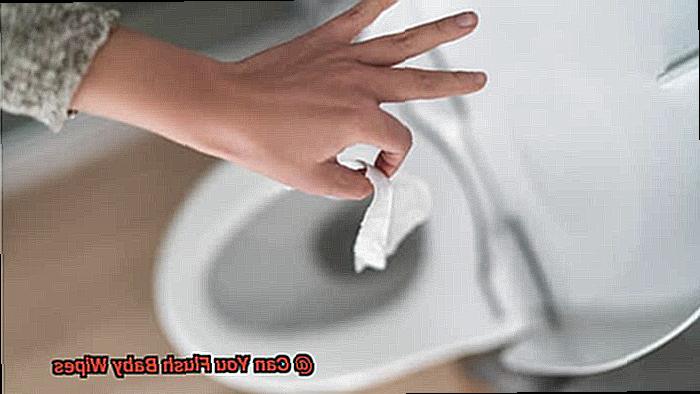
While it may seem convenient to flush them down the toilet, this can lead to significant damage to pipes and sewage systems. We’ve got you covered with the best ways to dispose of baby wipes.
First and foremost, never flush baby wipes down the toilet. Despite claims that they are flushable, it is not entirely true. Unlike toilet paper, baby wipes do not break down easily and can cause pipes to clog and sewage backups. Instead, used baby wipes should always be disposed of in a trash can or bin.
When disposing of used baby wipes in a trash can, ensure that the can has a lid and is emptied regularly to prevent any unpleasant odors or bacteria buildup. If you’re on the go and don’t have access to a trash can, bring a small plastic bag with you for disposing of used wipes.
It is also important to note that some baby wipes contain harmful chemicals and need to be disposed of properly to protect the environment. Look for baby wipes labeled as biodegradable or made from natural materials like bamboo or cotton. These types of wipes are not only better for the environment but also safer for your baby’s delicate skin.
In conclusion, when it comes to disposing of baby wipes properly, it is crucial never to flush them down the toilet. Instead, always throw them in a trash can or bin and opt for biodegradable or natural options to minimize your environmental impact.
Tips for Avoiding Plumbing Issues with Baby Wipes
When it comes to taking care of your little one, baby wipes are a must-have item. But did you know that flushing them down the toilet can cause significant plumbing issues? As an expert in plumbing, I’m here to share some tips to help you avoid these problems and keep your plumbing system running smoothly.
Dispose of Baby Wipes in the Trash Can
The number one rule is to never flush baby wipes down the toilet. Even if they are labeled as “flushable,” they can still cause major damage to your plumbing system. Instead, always dispose of baby wipes in the trash can. This means putting them in a designated waste bin and ensuring that they are properly sealed to prevent any odors or bacteria from spreading. If you’re using cloth wipes, make sure to wash them separately from other laundry and disinfect them regularly.
Educate Your Children
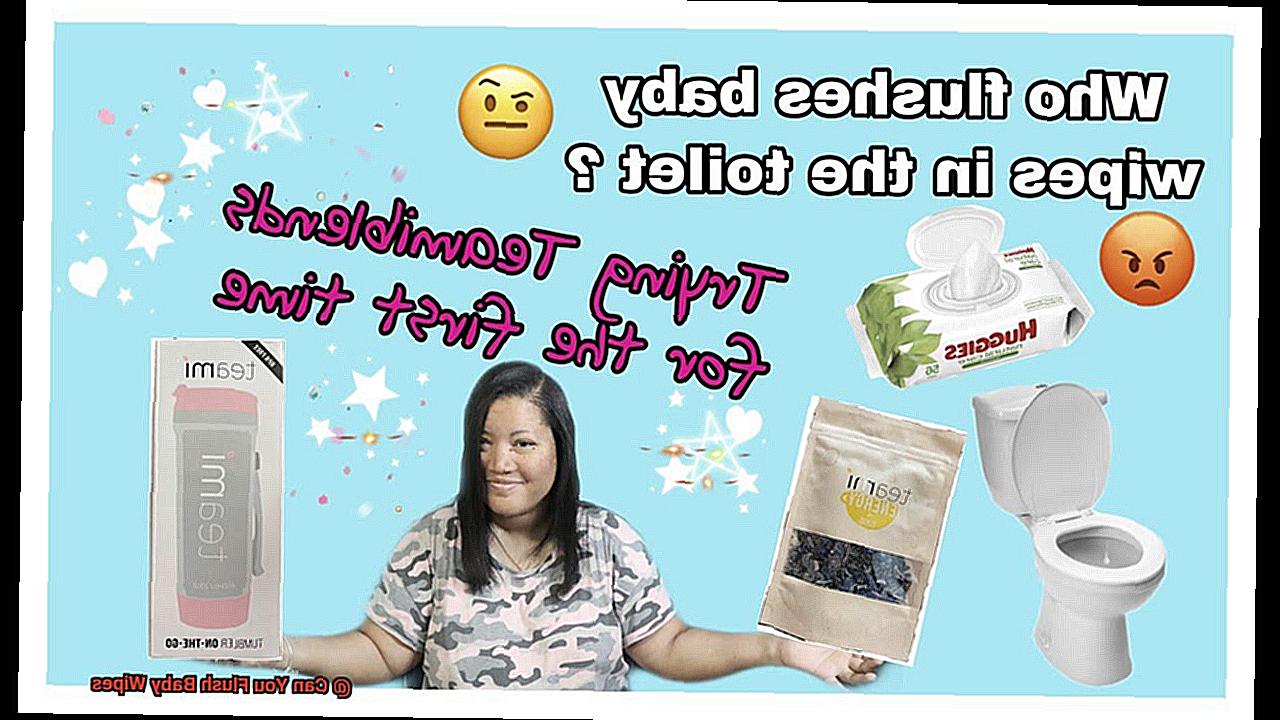
Educating your children about proper disposal of baby wipes is essential. Kids may not understand the consequences of flushing them down the toilet, so it’s important to teach them the right way to dispose of them. Make it a habit to throw used baby wipes in the trash can and explain why it’s important to do so.
Install a Bidet or Use a Diaper Sprayer
If you want to reduce the number of baby wipes you use, consider installing a bidet or using a diaper sprayer. This not only helps with waste reduction but also eliminates the need to flush wipes down the toilet. Plus, it’s more hygienic than using wipes alone.
Look for Wipes Labeled Safe for Septic Systems
When using wipes, make sure to look for ones that are labeled as safe for septic systems. These wipes are designed to break down easily and minimize the risk of clogs or backups. Using these wipes will give you peace of mind knowing that you’re not causing any harm to your plumbing system.
Schedule Regular Maintenance Checks
Finally, scheduling regular maintenance checks with a licensed plumber can help catch any potential plumbing issues before they become major problems. A plumber can check for any signs of clogs or blockages and ensure that your plumbing system is functioning properly.
dvwXX2oSd4E” >
Conclusion
In conclusion, the convenience of baby wipes during diaper changes and messy feedings is undeniable. However, flushing them down the toilet is a big no-no. Despite their “flushable” label, these wipes can wreak havoc on your plumbing system and harm the environment.
Unlike regular toilet paper, baby wipes don’t break down easily and can cause blockages that lead to expensive repairs. Non-flushable wipes are even worse since they’re not designed to break down at all and can clog your pipes faster than you can say “oops.”
The solution is simple: toss used baby wipes in the trash instead of flushing them down the toilet. This small act can save you from costly repairs and protect the environment from harm. Just make sure to use a trash can with a lid and empty it regularly to avoid any unpleasant odors or bacteria buildup.
It’s worth noting that some baby wipes contain harmful chemicals that need proper disposal to protect our planet. Opt for biodegradable or natural options made from sustainable materials like bamboo or cotton.

